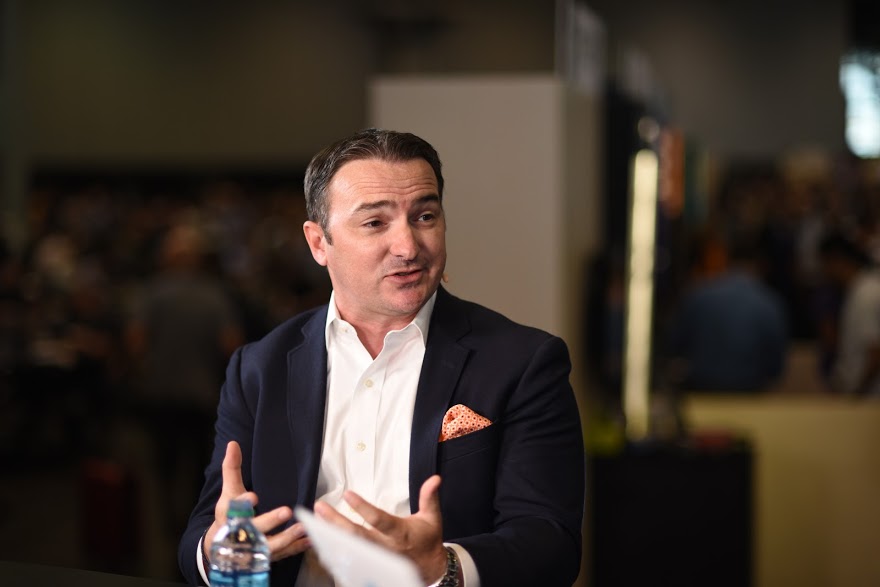 CLOUD
CLOUD
 CLOUD
CLOUD
 CLOUD
CLOUD
With the advent of around-the-clock banking and equity trading no longer halted by the closing bell, financial technology has witnessed the perks and challenges of modern computing. Investors increasingly want access to all of their money all of the time, and they don’t have a great deal of patience for financial companies that aren’t leading the vanguard.
Six years ago while at NASDAQ, Scott Mullins (pictured), head of worldwide financial services business development at Amazon Web Services Inc., was an early enthusiast on the value of cloud services for fintech.
“In order to be able to process data and actually derive value from it, you’ve got to have compute power,” Mullins said. Cloud is essential to provide the power at scale to apply analytics to the data, whether it’s traditional data analytics or machine learning, he added.
To discuss different aspects of fintech, as well as a cloud success story, Mullins visited with John Furrier (@furrier) and Jeff Frick (@JeffFrick), hosts of theCUBE, SiliconANGLE Media’s mobile livestreaming studio, during the AWS Summit in NYC. (* Disclosure below.)
Whether a fintech organization is a start-up business, with concerns around cost and viability, or a large legacy institution that’s been around for over 100 years, with worries about transformational changes, there are compelling reasons to move workloads to cloud, Mullins pointed out. Organizations look to cloud to help them with increased agility, faster time-to-market, and decreased costs.
Allianz Insurance plc, a U.K. insurance business that was founded 127 years ago, is an example of a fintech company that has used AWS to expand its business. Collaborating with AWS to launch a pet insurance business, Allianz was able to build a new platform from scratch in just three months, according to Mullins. Originally, the estimated time to completion was going to be 18 months.
When companies are first exploring the cloud, it’s best to start solving immediate problems, Mullins pointed out. “It’s always easier when you have something concrete to work from,” he stated.
If an organization doesn’t have a critical need, however, Mullins advises companies to scale some of their non-mission-critical workloads. For example, locating workloads that don’t involve sensitive information and moving those over as a testbed and then rapidly scaling up from there, he explained.
Watch the complete video interview below, and be sure to check out more of SiliconANGLE’s and theCUBE’s coverage of the AWS Summit in NYC. (* Disclosure: Amazon Web Services Inc. sponsored this segment of theCUBE. Neither AWS nor other sponsors have editorial control over content on theCUBE or SiliconANGLE.)
THANK YOU